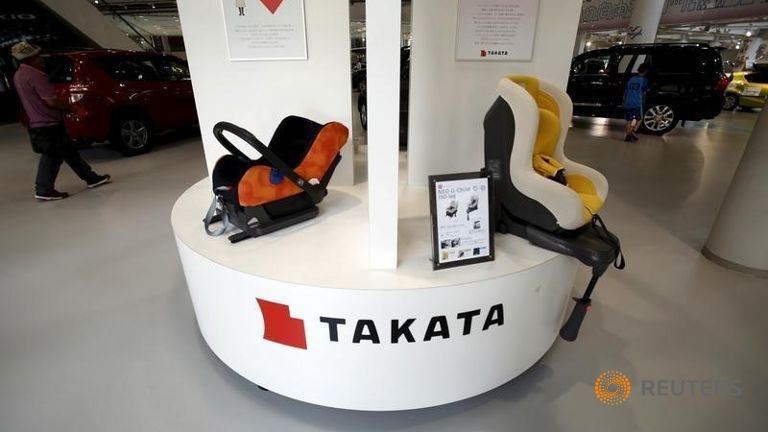Feds Probe VW Air Bags After Inflator Ruptures In Missouri
The cause on why the air bag of the 2015 Tiguan ruptured is not yet clear, according to the National Highway Traffic Safety Administration. The incident took place on June 7 in Missouri.
Two U.S. senators on Thursday called on Japanese auto supplier Takata Corp to immediately recall all vehicles containing the company’s air bags. It’s the first incident reported in a VW, the first in a side air bag, and the first in the field involving newer versions of Takata air bags.
Takata, no surprise, insists the Tiguan case is unrelated to any previous incidents.
More than 17 million older cars have already been recalled because they contain Takata airbags similar to those that have exploded.
With the cause of the June rupture of the 2015 model Volkswagen Tiguan’s side airbag is still not known, the NHTSA has – in its orders sent on August 13 – asked Volkswagen as well as Takata to provide information in part about the possible reason behind the airbag rupture. The accident triggered a federal investigation, which is now raising questions about the safety of air bags made by Takata after those involved in the earlier recall.
VW spokesman Mark Gillies said the company is working with NHTSA and Takata to better understand the situation. Gillies said there have been no other incidents of air bag inflators rupturing in VWvehicles.
When pressed by US legislators about the safety of ammonium nitrate, Kevin Kennedy, Takata’s executive vice-president for North America, has emphasised the growing role Takata’s competitors are playing in making replacement inflators that do not use the chemical. He said he didn’t know how many other VW vehicles have Takata air bags or for how long the company has used Takata air bags. One interesting twist to this story: Takata says most of the airbag problems in the US happened in very humid areas along the U.S. Gulf Coast.
The investigation could revolve around airbags that use ammonium nitrate as a propellant to inflate the bags.








